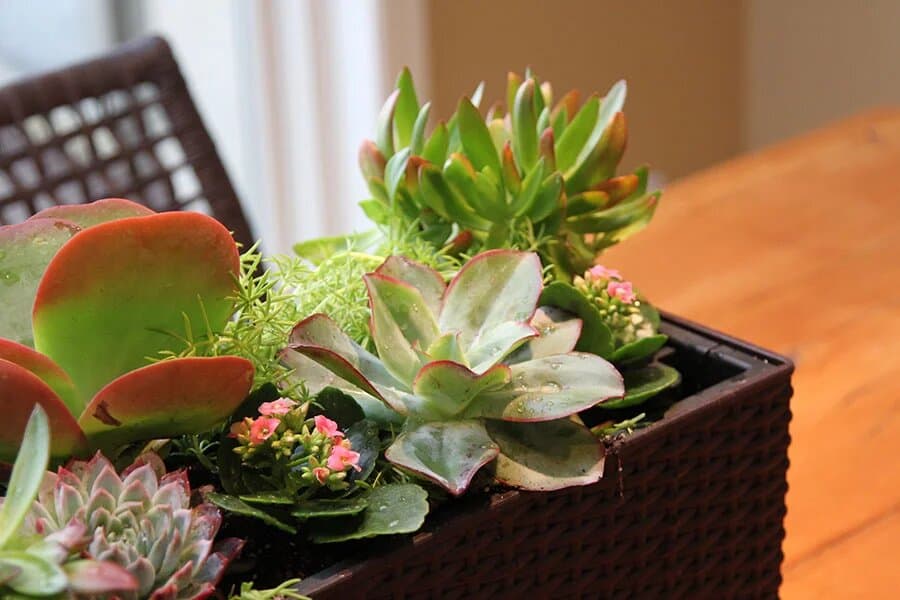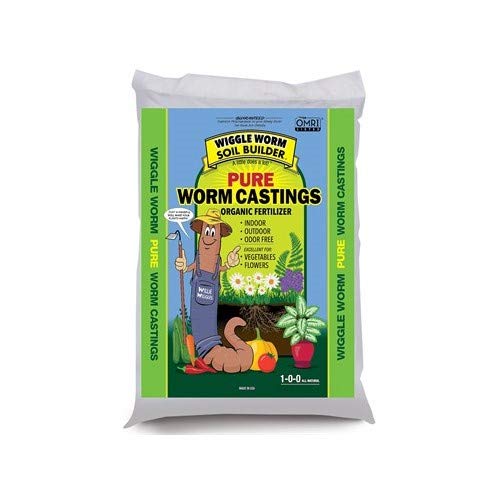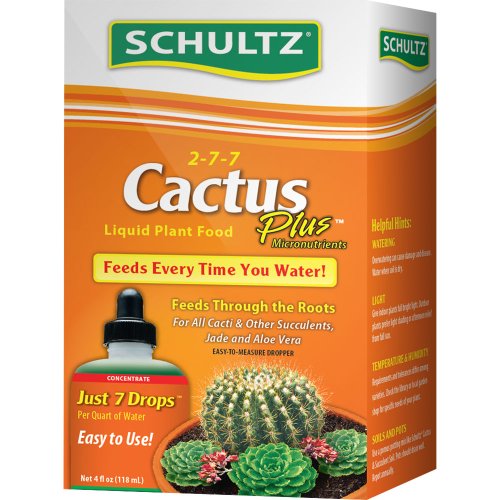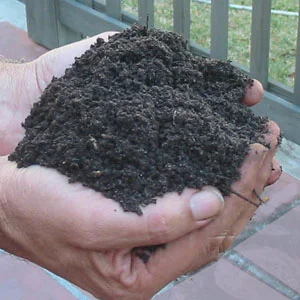The 5 Best Fertilizers for Succulents (2025 Edition)
Hey there! Do you have succulents? These cool little plants are fun to grow, but even they get hungry! You don’t have to feed them much, just the right stuff at the right times. I’m going to tell you the secrets to picking the best food for your succulent buddies.

So, you might be thinking, “I just got my first succulent!” or maybe you’re trying to make your current ones grow bigger and get more colorful. Guess what? Fertilizer is like a magic growth potion for them. Sure, succulents are pretty chill and don’t need much care, but the right kind of plant food can make a HUGE difference.
It can be a bit of a guessing game to figure out which fertilizer is the best. “How much should I sprinkle on?” you might wonder, or “How often?” It all depends on what kind of succulent you have, how big it is, and the size of its pot.
Hang tight—I’m going to give you the scoop on the top 5 fertilizers that will make your succulents super happy!
The 5 Best Fertilizers for Succulents
This page contains affiliate links, and as an Amazon Associate we earn from qualifying purchases which means we receive a small commission when you make a purchase, at zero cost to you.
| Image | Product Title | Our Rating | Price |
|---|---|---|---|
Our Top Pick  | EarthPods Premium Cactus & Succulent Plant Food NPK Composition: 0.2-0.2-0.4 | 9.7 | Check Latest PriceRead Our Review |
Most Popular  | Miracle-Gro Succulent Plant Food NPK Composition: 0.5-1-1 | 9.5 | Check Latest PriceRead Our Review |
 | Wiggle Worm Soil Builder Worm Castings Organic Fertilizer NPK Composition: 1-0-0 | 9.1 | Check Latest PriceRead Our Review |
 | Jobe’s Succulent Fertilizer Spikes NPK Composition: 2-8-8 | 8.8 | Check Latest PriceRead Our Review |
 | Schultz Cactus Plus 2-7-7 Liquid Plant Food NPK Composition: 2-7-7 | 8.6 | Check Latest PriceRead Our Review |
If you want to feed your succulent like a pro with organic stuff, EarthPods has these cool little pods for you. They’re packed with stuff plants love—like natural goodies that help them grow big and strong. We tried them and saw our plants get more colorful, grow better stems, and bigger roots. Plus, you get a lot in just one tube! You can use it for years before running out.
Using them is a piece of cake: pop a pod right into the soil near your plant. If you don’t use soil, just open the pod and sprinkle it around. Depending on your plant size, you use more or fewer pods. They’re super safe for kids and pets and come in a neat little tube that’s earth-friendly.
This stuff is like the popular kid at school—Miracle-Gro plant food is a big deal for giving succulents a fast snack. It works like a charm, so you’ll see results right away.
What’s awesome is how easy it is to use. You can mix it with water or sprinkle it on the dirt. The bottle has a pump, so you can get just the right amount without guessing. Miracle-Gro says to use a couple of pumps for small pots and more for bigger ones. Once a month should do the trick!
Worm castings by Wiggle Worm are like a buffet of nutrients for your plants, and they gobble it up fast. The worms do all the work, munching up the soil and leaving behind a treasure of plant food.
These castings are super because they feed your succulents for ages, and your plants can use as much as they need without any waste. There’s also loads of friendly tiny critters in there making the soil healthier. And get this—the castings make the soil nice and airy, so roots can grow big and plants don’t get soggy feet from too much water.
Get ready for something cool—fertilizer spikes by Jobe’s. You just stick them into your succulent’s soil, and they feed your plants slowly, so one spike lasts a year.
These spikes are super friendly for people and fur babies, and they don’t stink because they’re hidden in the dirt. They deliver food straight to the roots and are made from natural stuff, like feather and bone meal. Plus, they’ve got just the right amount of food for your succulents, so the plants don’t get overfed.
Schultz’s plant food is like a special drink for your succulents and cacti, including the cool aloe vera and jade plants. Every time you water with this mixed in, your plants are getting fed right through their roots. They’ll start growing new parts, and you’ll get healthy, happy plants.
It comes with a super handy dropper, so measuring is no sweat. Schultz says for indoor plants, use seven drops in a quart of water if you’re feeding them a couple of times a month.
Just remember to use this food when your plants are awake and growing, and give them a break during their naps!
Contents
Do Succulents Need Fertilizer?
Most potted succulents don’t need much water or food, but every time they’re watered, they lose some food from their soil. That means you gotta feed them once in a while.
Succulents can live without extra food, sure, but they’ll grow faster and look more awesome if they get a bit of fertilizer. Got a succulent that looks a little sad? A sip of liquid fertilizer can perk it right up!
But be careful—too much fertilizer can harm your succulents, like burning their leaves and roots. It’s super important to use just the right amount.
If your succulents are outdoors, they might not need any extra food, since they can get what they need from the ground. But if you do need to give them something, just use half of what the fertilizer bag says, and only in the spring.
How to Fertilize Succulents?
Fertilizing your succulents depends on what kind of food you’re using.
Sprays and Pumps
Some of the quick-release and short-lasting fertilizers come in a spray bottle. This is one of the easiest ways to apply fertilizer because it gives you a lot of control over where the fertilizer is going. Spray directly to the top of the soil, around where the roots of the plant would be.
Pumps work the same way, only instead of using a spray nozzle, you use a pump to expel the fertilizer directly onto the surface of the soil.
Pellets and Capsules
Some fertilizers come in tiny balls called pellets. They release food slowly. All you do is sprinkle them on the soil and water your plant. For little succulents, mix the pellets into the soil. For bigger plants, just put them on top of the soil.
Liquid Fertilizers
These are strong and you have to mix them with water before feeding your succulents. Use half of what the label says for most succulents. After watering your plant, pour the mixed food until it drains out of the pot. For tropical succulents, like the Christmas cactus, make the mixture even weaker and use it when the soil gets dry.
Worm Castings

There are a few ways to use worm castings. One way is to sprinkle a teaspoon of it on the soil near your plant. Or, when you’re repotting a plant, you can mix it into the soil. Lastly, worm castings can be made into a tea (don’t drink it, though!). Soak the castings overnight in water using a DIY tea bag (like a piece of an old shirt). The next day, use this tea to water your plants, and watch them grow happy and strong. Just remember, do this early in the morning for the best results. Then you can take the castings from the tea bag and put them back in your garden or compost pile.
When to Fertilize Succulents?
Guess what? Succulents aren’t big eaters when it comes to fertilizer. Give them too much, and they’ll grow all tall and floppy instead of strong.
The timing for feeding these little guys is pretty important. Most succulents take a break and chill during the fall and winter, which means no snack time for them then. So, when should you fertilize? Start in the spring, when they wake up and are ready to grow again. Depending on the food you give them, how often you’ll need to feed them after that can change.
In winter, your succulents are basically hibernating, so don’t give them any fertilizer at all. If you’re getting your plants ready to come indoors for the cold times, like around September, stop giving them food in August. That way, the fertilizer doesn’t pile up in the soil when the plants are taking their rest.
How Often to Fertilize Succulents?
How often you give your succulents some food depends on both the plants and the kind of fertilizer you’re using. To feed them right, you’ve got to know when they like to grow.
Always look at what the fertilizer package says because every kind is a bit different. Some fertilizers are slowpokes and release food over time, while others are like an instant snack for your plants.
With some slow-release fertilizers, you only need to use them once when spring hits, and they’ll keep your plants fed all through the growing season. But if you’re using a quick-feed type, some succulents are okay with getting fertilizer every month. Just remember, too much of anything is never good, so stick to what the instructions say to avoid any plant problems.
Conclusion
Some folks might think, “Succulents are tough; they don’t need extra food!” But even in the desert, where life is tough, a little fertilizer can help them grow better and look prettier.
If you’re not happy with how your succulents are doing, don’t worry! Our top fertilizer picks might just be the boost they need to shine.






